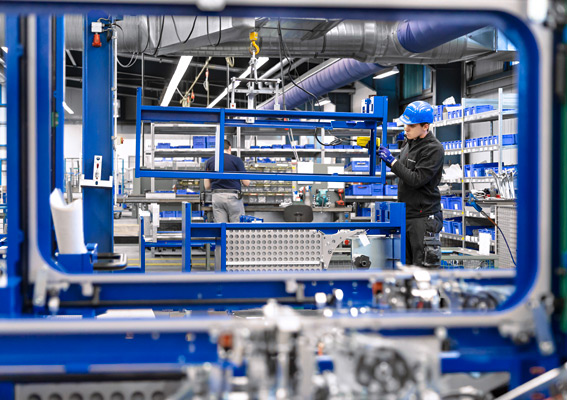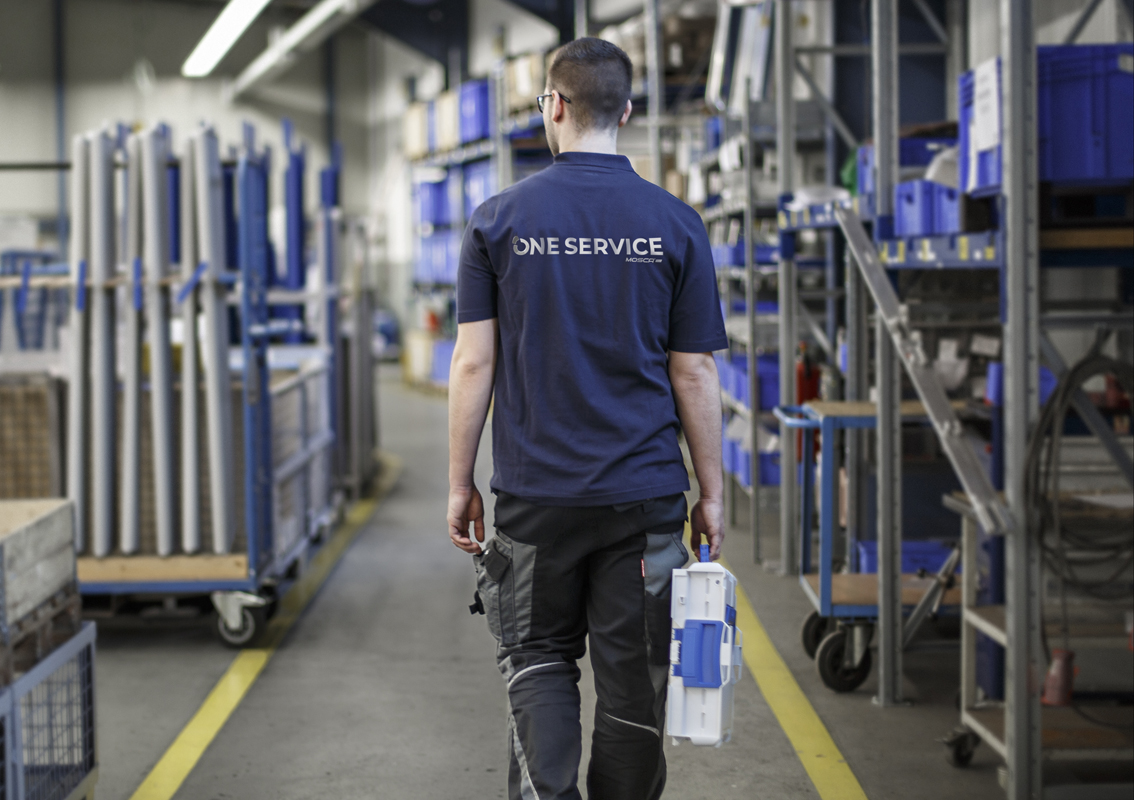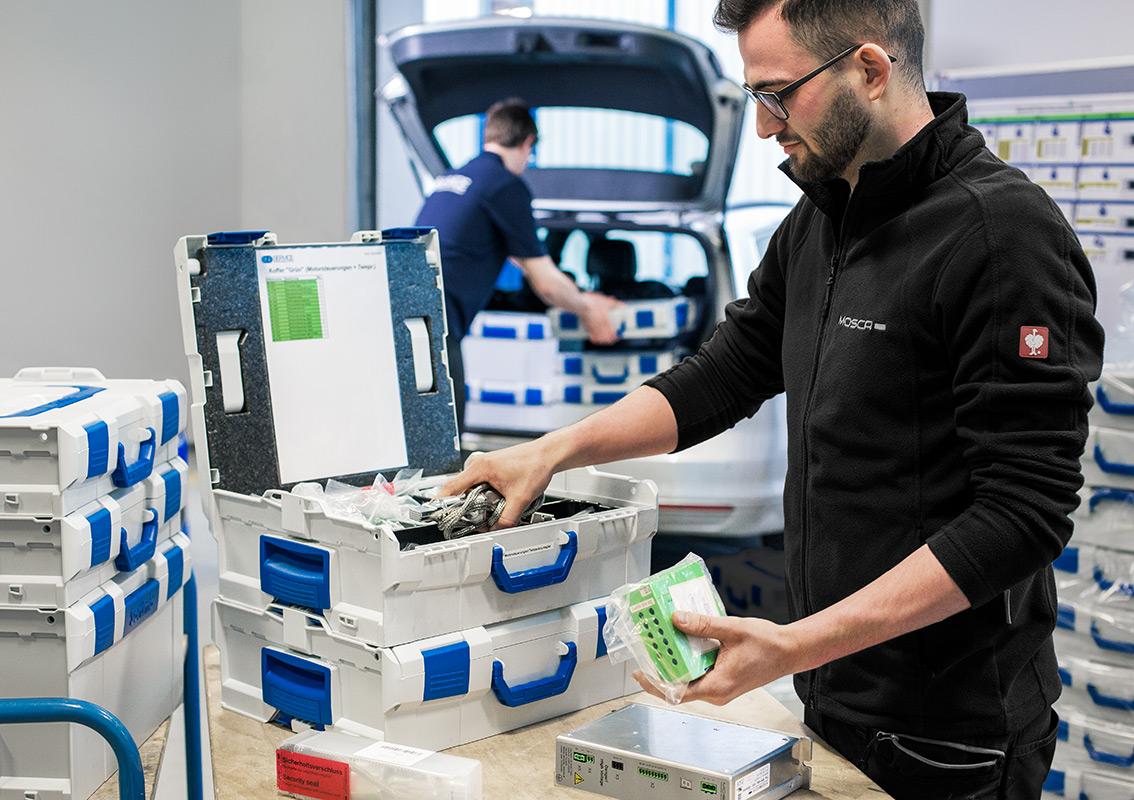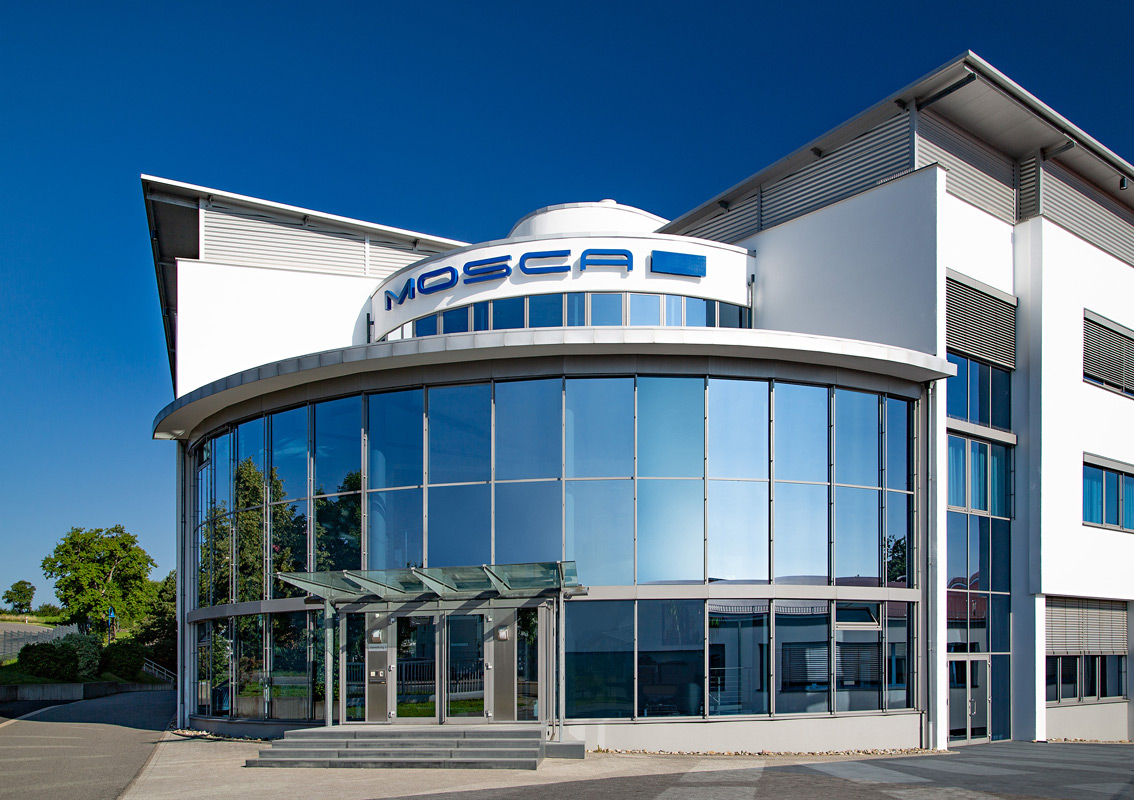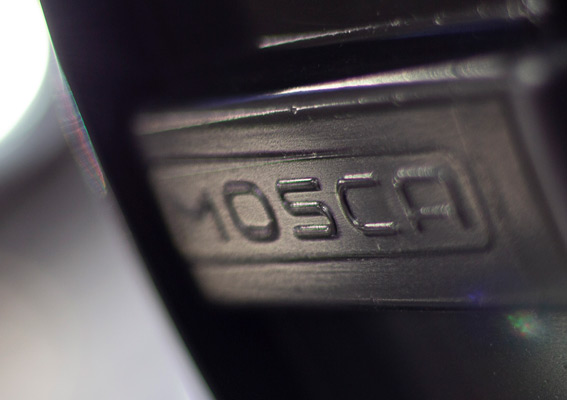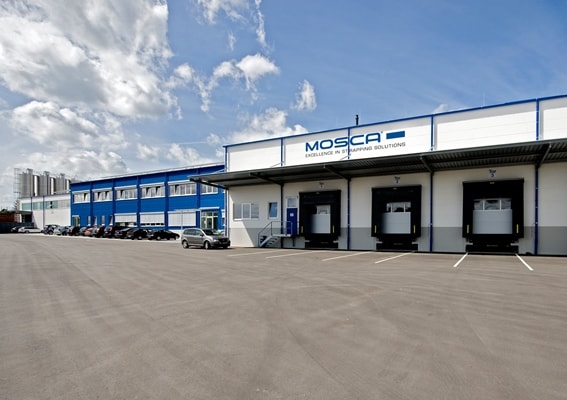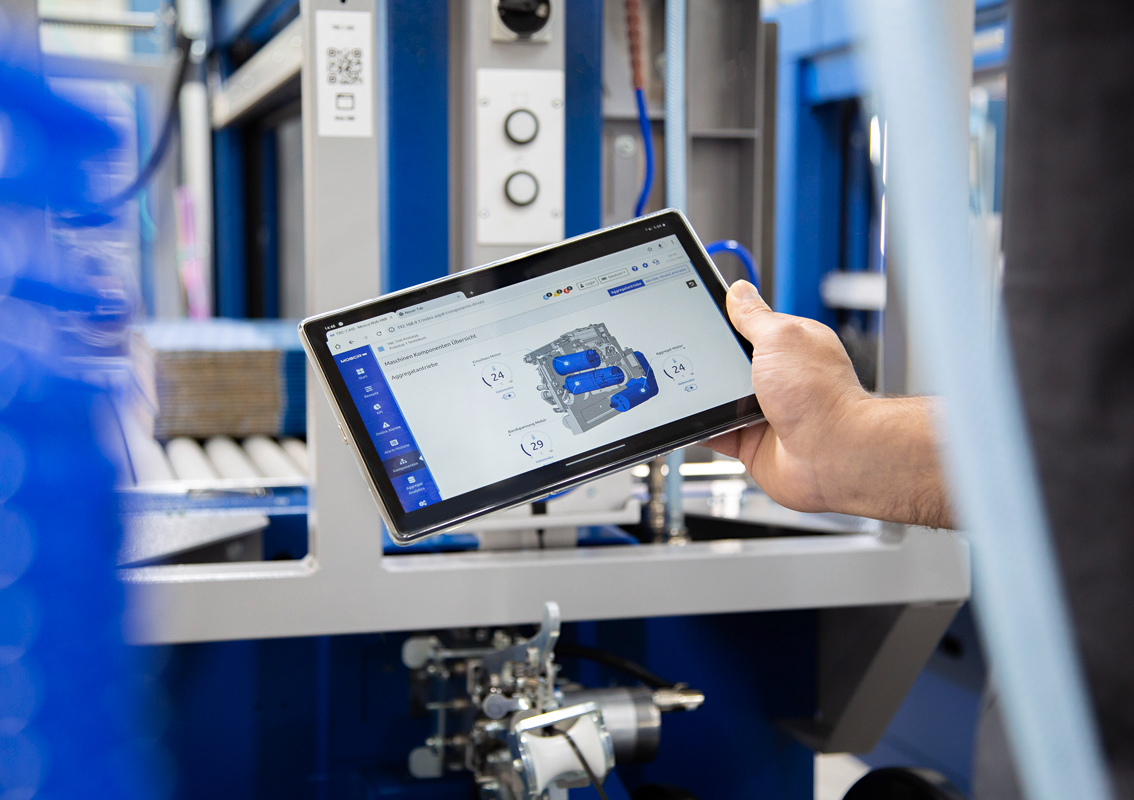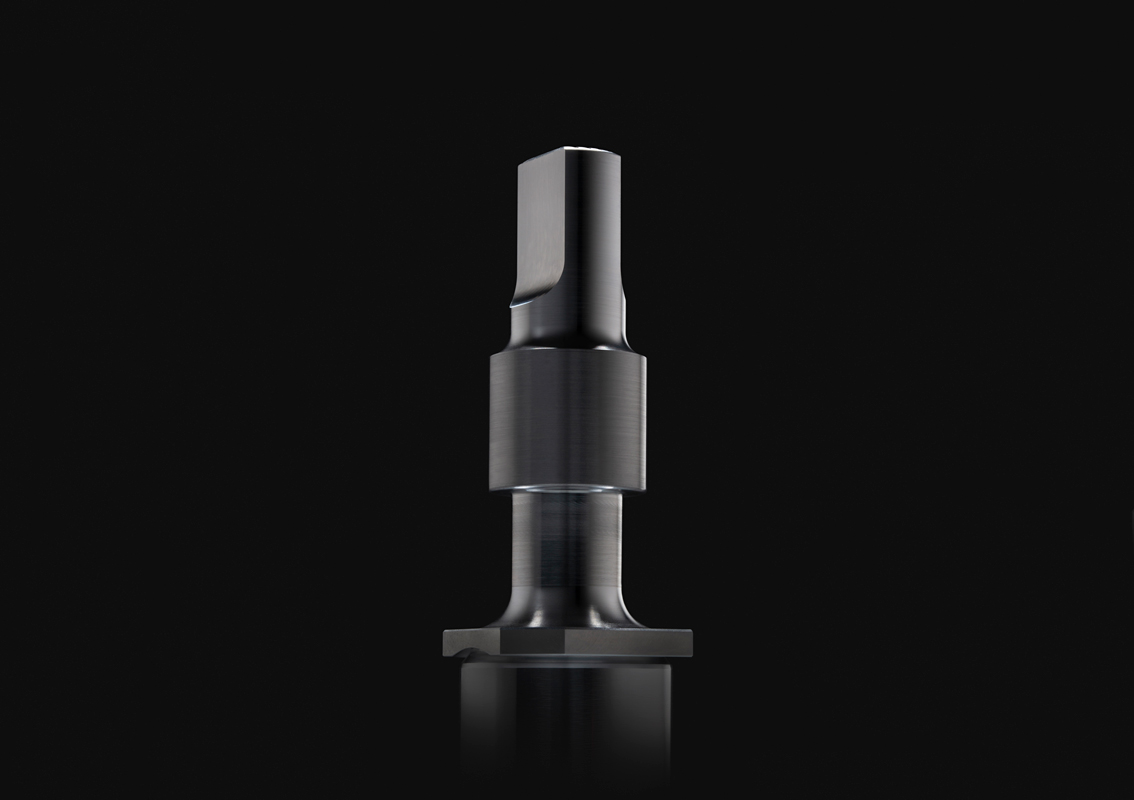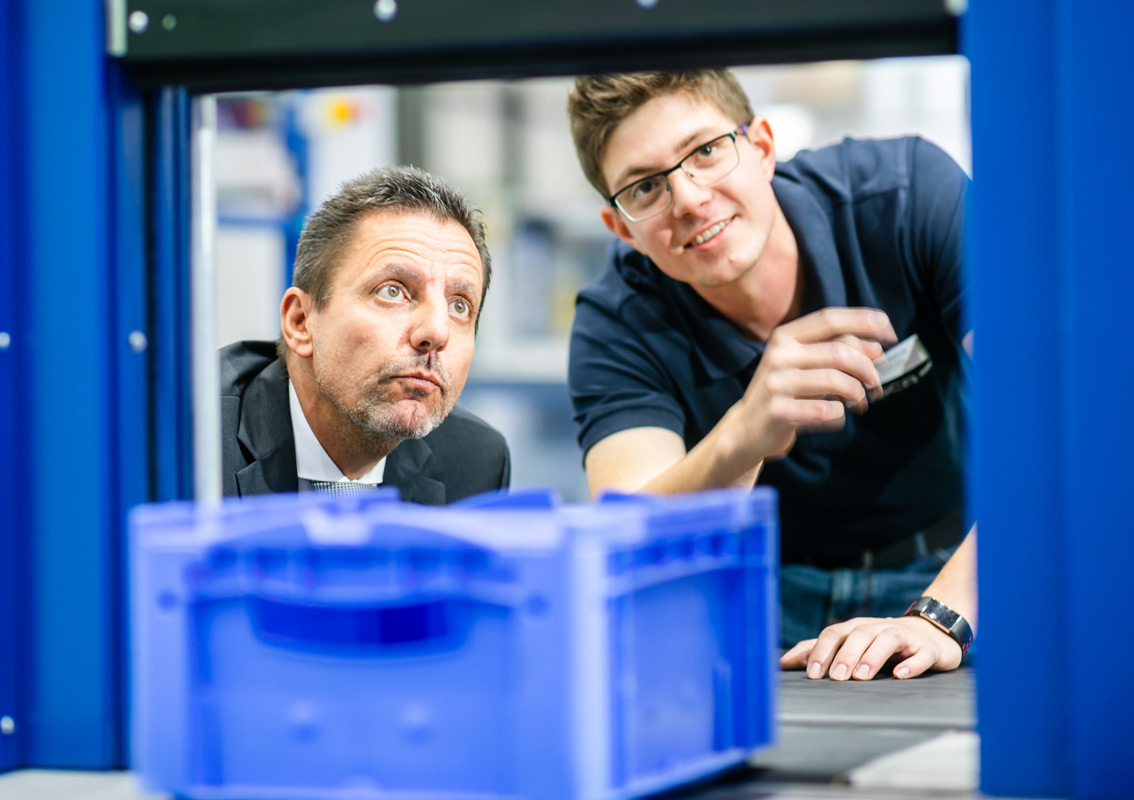Mosca’s end-of-line packaging automation
To ensure that manufacturers can safely transport their goods across land and sea, Mosca has been developing innovative automated strapping, pallet strapping, and end-of-line packaging systems since its founding in 1966. With international locations and extensive service networks across the globe, Mosca provides end-of-line packaging technology and service packages that help lower maintenance costs and reduce corporate carbon footprints while increasing manufacturing throughput.
While for some low-volume, end-of-line packaging low-tech strapping tools might be a good fit, high-volume or complex packaging often requires automated systems. Thanks to different interfaces like OPC-UA or cloud edge computing modules, Mosca’s automated packing and strapping systems can be integrated with other parts of a company’s manufacturing process, such as shipping, invoicing, and related ERP applications.
The compatibility with already existing systems also enables integrating advanced end-of-line packaging systems with robots and cobots. This allows a seamless collaboration of humans and machines. Especially in lines where robots and cobots are used to identify, sort or select, and pack products in various containers or on pallets, a combination with strapping systems allows manufacturers to benefit from a higher level of automation. They can improve not only their efficiency and worker safety with such a combination but also maintain a consistent factory throughput.
The advantages of automating end-of-line packaging systems
As a manufacturing company grows and market demand for its products outstrips its current production levels, adopting automatic strapping systems is one of the main challenges many smaller manufacturers face. An automated end-of-line packaging solution should fulfill a few criteria:
- Maintains a steady and predictable throughput pace, day in, day out
- Eliminates post-production bottlenecks
- Adds flexibility when demand surges
- Enhances the company’s competitive edge
- Integrates with the plant’s divergent production control systems
- Requires little operator intervention
Investing in a higher level of automation
Investing in an automated strapping or end-of-line packaging system is a capital-intensive consideration. The company must calculate when they’ll realize a suitable return on investment (ROI) before making such a decision. Mosca’s automated packaging and strapping solutions support a sped-up ROI by implementing a few discerning factors. They:
- Reduce end-of-line operating costs and increase profit margins
- Reduce labor costs due to efficient automation
- Reduce shipping damage and customer returns
- Increase workplace safety
- Add staffing flexibility during challenging hiring periods
Integrating sustainable solutions
Implementing a higher-level automated end-of-line system can also have environmental benefits. Studies show that manufacturing companies strive to create more sustainable production processes by using the available resources efficiently. To reach a more sustainable process and adopt materials that meet current sustainable packaging regimes, companies are looking to integrate automated strapping and pallet strapping systems that can handle multiple types of raw materials. Customer values play a role in the investing decision as well: the Global Buying Green Report suggests that 83% of consumers under 44 years old are willing to pay more for sustainable packaging products. In comparison, 57% would reject buying products that harm the environment.
Mosca has been continuously developing solutions that help protect the environment since 2006 – the year it developed an advanced ultrasonic sealing method that seals strap ends while eliminating harmful emissions and reducing electrical power consumption. The technology works with both polypropylene (PP) and polyester (PET) plastic straps. Mosca produces its own PET strapping material with up to 100% recycled materials. The PET strapping material can, in turn, also be recycled after use to produce more strapping, creating a full circle recycled loop.
 Mosca International
Mosca International
 America
America
 Asia
Asia
 Australia
Australia
 中国
中国
 Deutschland
Deutschland
 Suomi
Suomi
 France
France
 Great Britain
Great Britain
 Indonesia
Indonesia
 日本
日本
 Malaysia
Malaysia
 Mexico
Mexico
 Nederland
Nederland
 Polska
Polska
 España
España
 ประเทศไทย
ประเทศไทย
 Magyarország
Magyarország

